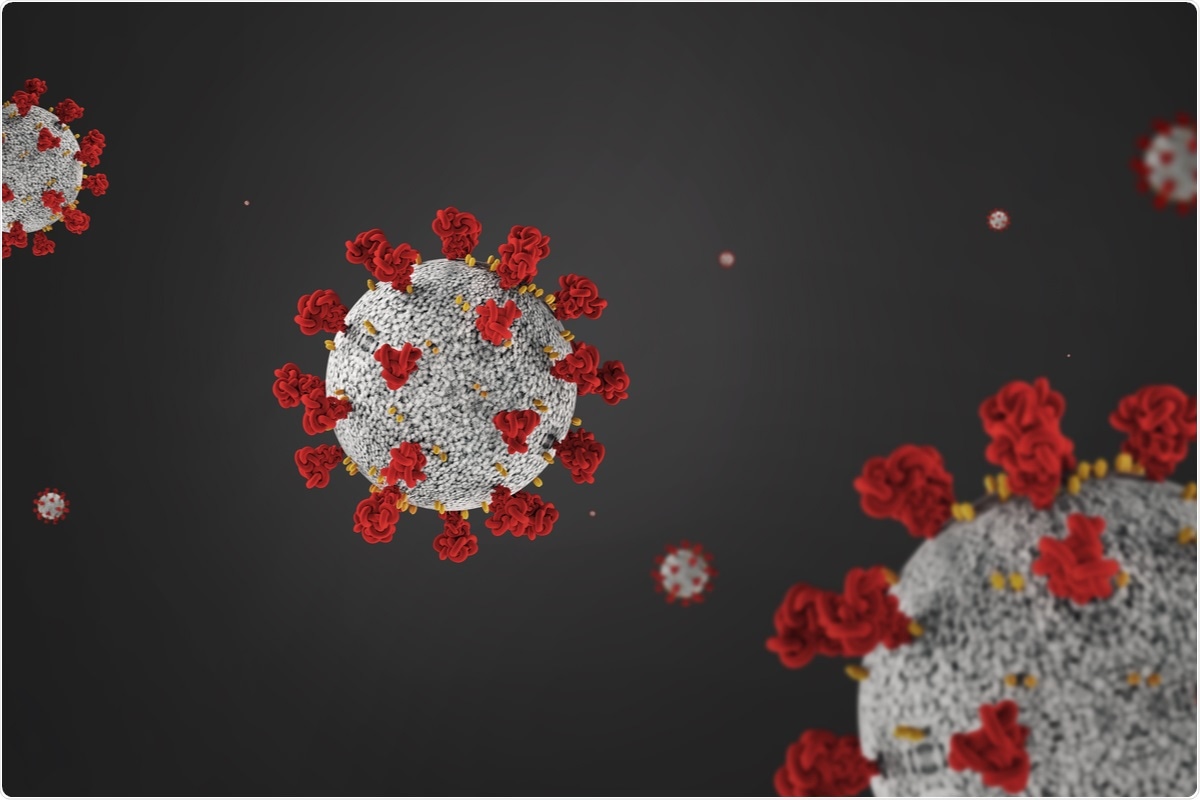Severe acute respiratory syndrome coronavirus 2 (SARS-CoV-2), the causative agent of coronavirus 19 (COVID-19), was first reported in Wuhan, China, in December 2019. Due to the rapid spread of the disease, the World Health Organization (WHO) declared COVID-19 as a pandemic on March 11, 2020. The virus to date has been responsible for over 241 million infections and 4.9 million deaths and is continuing to spread despite the rapid global vaccination efforts.
 Study: Safety and immunogenicity of CpG 1018 and aluminium hydroxide-adjuvanted SARS-CoV-2 S-2P protein vaccine MVC-COV1901: interim results of a large-scale, double-blind, randomised, placebo-controlled phase 2 trial in Taiwan. Image Credit: GEMINI PRO STUDIO/ Shutterstock
Study: Safety and immunogenicity of CpG 1018 and aluminium hydroxide-adjuvanted SARS-CoV-2 S-2P protein vaccine MVC-COV1901: interim results of a large-scale, double-blind, randomised, placebo-controlled phase 2 trial in Taiwan. Image Credit: GEMINI PRO STUDIO/ Shutterstock
One vaccine developed to fight the COVID-19 pandemic is the MVC-COV1901 recombinant protein subunit vaccine, based on the stabilized pre-fusion SARS-CoV-2 spike protein S-2P, adjuvanted with CpG 1018 and aluminium hydroxide. Previous research has demonstrated the total protection of MVC-COV1901 in SARS-CoV-2 wild type (WT) infected hamsters. The MVC-COV1901 vaccine was shown to elicit B cell and T cell immune responses.
In a study published in The Lancet Respiratory Medicine, researchers performed a large-scale, double-blind, placebo-controlled phase two trial to assess the efficacy, safety, and immune response elicited from vaccination with MVC-COV1901.
The study
Collectively, 2510 out of 3844 participants reported experiencing local adverse effects following any dose of the study intervention. Participants in the MVC-COV1901 group reported more adverse events when compared to the placebo group, which were reported to be mild (grade 1) to moderate (grade 2) in severity. Pain at the injection site was the most commonly reported adverse event, from 2346 participants in the MVC-COV1901 group and 128 participants in the placebo group.
Fatigue or malaise was the most common systemic adverse side effect reported, with 1186 from the MVC-COV1901 group and 163 from the placebo group. Most reported adverse events were self-limiting and resolved within seven days, with a mean duration of fewer than three days.
Within the participants 65 years of age or older, 838 experienced local adverse events, and 324 experienced system adverse events. There were no adverse effects that were deemed to be serious enough to be reported by any of the participants. However, one participant reported experiencing temporary facial paralysis in the MCV-COV1901 group, which was linked to the vaccine.
The WT SARS-CoV-2 neutralizing antibody geometric mean titer (GMT) was 662.3. The GMT ratio was 163.2 on day 57 of the trial, in the per-protocol immunogenicity subset of the trial MVC-COV1901 group, of which both values were significantly higher than the placebo group. Within the MVC-COV1901 group, the younger adults displayed higher GMT (732.9) when compared to the older adults (484.5).
Following the conversion of GMT to IU/mL, on day 57 of the trial, the GMTs of neutralizing antibodies for all participants in the per-protocol immunogenicity subset were 408.5 UL/mL, 453.5 UL/mL for the group of younger adults, and 295.7 UL/mL for the group of older adults.
From the WT SARS-CoV-2 GMT, the seroconversion rate on day 57 was 99.8% in the MVC-COV1901 group, with two participants showing no seroconversion. Within the placebo group, no seroconversion was observed. In the younger adult group who received the MVC-COV1901 vaccine, 99.9% displayed seroconversion, and in the older adult group, 99.5% showed seroconversion.
In the per-protocol immunogenicity subset of the MVC-COV1901 group, the anti-spike IgG GMTs increased from 52.7 on day 1 to 430.5 on day 29. By day 43, the levels of anti-spike IgG increased further to 8262.2 and remained at 5745.4 by day 57. At all time points within the trial, the younger adults displayed higher anti-spike IgG GMTs than the older adults.
Following conversion to BAU/mL, on day 57, anti-spike IgG GMTs for the per-protocol immunogenicity subset group were 524.0 BAU/mL, 594.7 for the group of younger adults, and 354.5 BAU/mL for the group of older adults.
Implications
This study shows that the MVC-COV1901 vaccine elicits promising antibody titers and has a good safety profile. The vaccine appears to be safe, well-tolerated, and rarely elicits adverse side effects in both younger and older adults. High neutralizing antibody and anti-spike IgG titers are induced from vaccination with MVC-COV1901, and it produces a seroconversion rate of almost 100%.
The authors utilized the IU and BAU conversion methods from the WHO to predict the clinical efficacy of MVC-COV1901, which was shown to be similar to both methods. The results from this phase II trial support the advancement of the MVC-COV1901 vaccine in subsequent phase III trials. Emergency use of this vaccine has recently been granted in Taiwan.